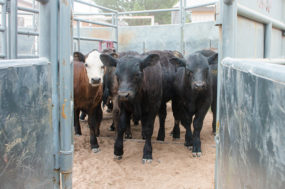Here are some of the key developments in 2015:
-
“Waters of the United States” regulation finalized, then stayed. Probably the most-watched agricultural law issue of 2015 was the EPA’s and U.S. Corps of Engineers’ new regulation defining “waters of the United States” pursuant to the Clean Water Act.
The agencies solicited public comment in 2014 and issued their final rule in May. Numerous lawsuits followed, challenging the scope of the rule and the procedure used in adopting the rule. Currently, these suits are pending in nine federal courts across the country.
In October, the U.S. Court of Appeals for the 6th Circuit issued a nationwide stay on the rule until the lawsuits can be considered. Shortly thereafter, the EPA’s motion to consolidate all of the pending cases into one action before the U.S. District Court for the District of Columbia was denied.
Although Congress considered bills seeking to overturn the new rule, in November the Senate’s version of the bill failed to pass. Thus, for now, the new rule is not in force and litigation continues.
-
Idaho “ag gag” statute declared unconstitutional. An Idaho federal judge issued the first legal ruling on the constitutionality of a law prohibiting secret filming of farm operations (commonly referred to as “ag gag laws”).
The purpose of such laws, argue proponents, is to protect the safety and privacy of farm families, employees and animals from animal activist groups infiltrating operations. Opponents, on the other hand, claim that the laws encourage animal abuse and infringe upon free speech rights.
The court agreed with the challengers, finding that the Idaho law violated both the First Amendment and Equal Protection Clause. It is unclear at this time whether Idaho will appeal the court’s decision.
Several other states, including North Dakota, Montana, Kansas, Utah, Iowa and Missouri, have similar laws. The impact of the Idaho court’s decision on laws in other jurisdiction remains to be seen but is concerning to proponents of such laws.
-
Lesser prairie chicken listing under Endangered Species Act vacated. In September, a federal judge in the Western District of Texas found that the U.S. Fish and Wildlife Service failed to follow their own rules when listing the lesser prairie chicken as “threatened” under the Endangered Species Act.
Specifically, the Fish and Wildlife Service failed to adequately take into consideration voluntary conservation plans entered into by landowners prior to the listing decision. Although the Fish and Wildlife Service has not yet filed an appeal with the U.S. Court of Appeals for the Fifth Circuit, it is expected that one will be forthcoming. For now, however, the federal protections for the bird have been removed.
-
Resource Conservation and Recovery Act “solid waste” provision applied to manure. Earlier this year, a Washington federal court found, for the first time, that manure met the definition of “solid waste” under the federal Resource Conservation and Recovery Act (RCRA).
The case involved the alleged improper storage and application of manure by dairies in Washington state. The result of the application of RCRA to manure is that federal requirements under the act would apply. Shortly after this decision, the parties settled the case, entering into a consent decree under which the dairies would undertake several steps to prevent manure contamination of groundwater.
Whether this same decision will be made by other courts across the country is unclear. At least one dairy in California has reportedly been served with an intent to sue under RCRA. Producers should certainly be concerned that lawsuits under RCRA are a possibility and ensure proper handling, storage and application of manure.
-
Corn producers and agribusinesses file suits against Syngenta. After shipments of U.S. corn were rejected by China due to the presence of a genetically modified Syngenta variety, MIR-162, several agribusinesses and corn producers across the country brought suit against Syngenta.
The lawsuits, the vast majority of which have been consolidated in multi-district litigation, generally allege that Syngenta’s selling of the seed in the U.S. without Chinese approval caused a decline in the corn market due to the rejections.
Syngenta, on the other hand, argues that the seed was approved for use in the U.S., China was not a major purchaser of U.S. corn, and there is no evidence of causation between the MIR-162 seed and the decline in corn prices. The lawsuits remain pending.
-
Draft drone regulations published by the FAA. The Federal Aviation Administration published much-anticipated draft regulations related to drone use in the U.S. The regulations cover a variety of issues including operator qualifications, height and visual requirements for drone operation.
These regulations, when finalized and enacted, will allow commercial drone use in the U.S. Currently, drones may only be used for recreational or hobby use. Any commercial use of a drone requires a permit from the FAA. The draft rules were open for public comment, and final rules should be forthcoming.
-
American Quarter Horse Association cloning suit reversed; registration not required. After losing at the trial court level, the American Quarter Horse Association scored a major victory on appeal when the U.S. Court of Appeals for the Fifth Circuit found that the rule banning registration of cloned horses or their offspring did not violate the law.
-
Genetically modified organism production bans and labeling issues considered. The buzz over genetically modified organisms (GMOs) continued to increase during 2015. Several legal issues have arisen. Chief among these is a legal challenge to a Vermont law that will require labeling of all products containing GMO ingredients by 2016.
Numerous plaintiffs, led by the Grocery Manufacturers Association, filed suit claiming the law violates the First Amendment, the Commerce Clause and is pre-empted by federal law. In April, the court issued a ruling primarily in favor of Vermont, which is now on appeal.
Although Connecticut and Maine have also passed such labeling laws, only the Vermont law has a set effective date, while the other states’ laws will become effective only once certain trigger conditions are met. Another case arose in Hawaii, where a federal judge struck down a local law prohibiting farmers from growing any GMO crops in Maui County. Specifically, the court found this local law was pre-empted by state and federal laws on the topic.
-
U.S. Supreme Court sides with raisin farmers in takings case. It is not that common for a farmer to be before the U.S. Supreme Court, but California raisin farmers and brokers not only appeared but prevailed on their takings claim before the court earlier this year.
Under the Agricultural Marketing Agreement Act, the USDA sets a quota on the number of raisins that may be sold in the U.S. each year by requiring growers to give a certain percentage of their crop to the government. The surplus crop is then either destroyed, donated or sold in non-competitive markets.
The plaintiffs claimed that this marketing scheme resulted in a taking of their private property rights, for which just compensation was owed. The high court agreed, ordering the USDA to compensate the growers the market value of the raisins at the time they were taken by the government.
How broadly this decision will be applied, and whether it will impact any other price control laws is, for now, not clear.

-
Tiffany Dowell Lashmet
- Assistant Professor and Extension Specialist
- Agricultural Law
- Texas A&M AgriLife Extension Service
- Email Tiffany Dowell Lashmet







